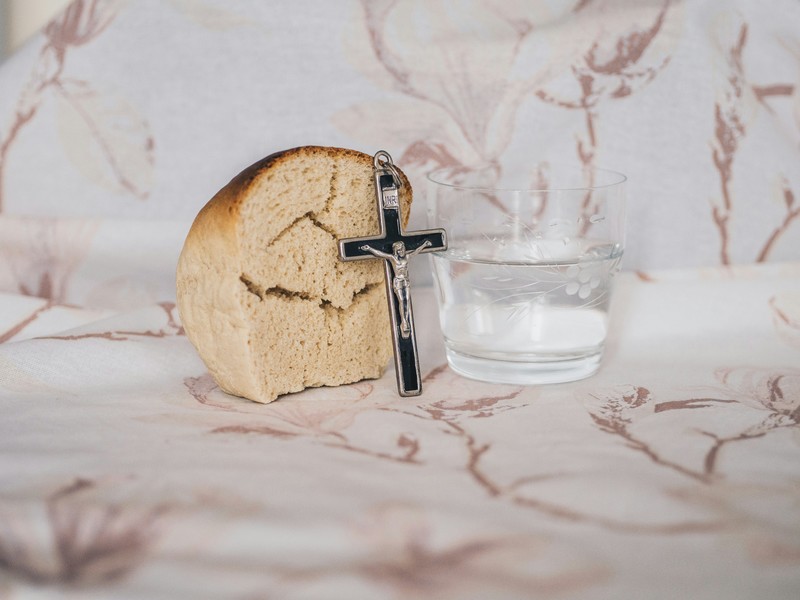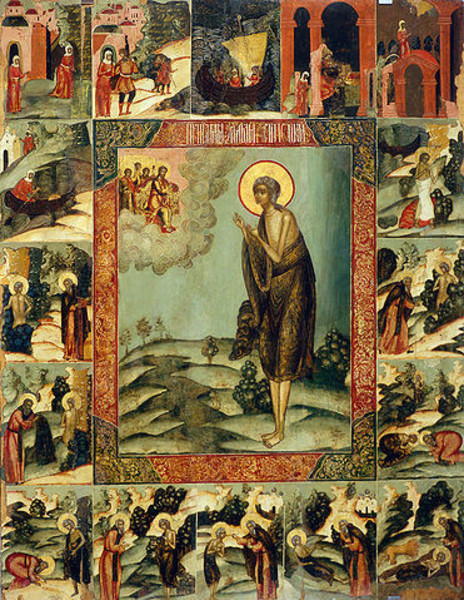Fasting; The Second Pillar of Lent

In my last blog post, I talked about prayer, the first pillar of Lent. In this blog post, I will be talking about fasting, the second pillar of Lent.
Many of us immediately think of denying ourselves certain types of food as the first thought when we hear the word ‘fast’. Food is the heart of many cultures around the world. Besides being a source of sustenance, it is also at the table where relationships are nurtured. We have conversations over a meal together, we go on dinner dates, we even bond over cooking together. We commune with each other through food. It is not a shocker then, that we are in communion with God through the Eucharist, our spiritual food, where we consume the body and blood of Jesus. So, why do we fast? Fasting is not a modern invention. From the early days of the church, fasting has been encouraged. Even Jesus fasted and encouraged his disciples to fast.
“After fasting forty days and forty nights, he was hungry.” - Matthew 4:2
We fast to feel the pangs of hunger and thirst. In today’s culture, we indulge in such excess that we sometimes forget what hunger and thirst feels like. In fact, we often feed ourselves continuously because we are afraid of hunger. We have become a fearful people, afraid to feel sensations that we think causes us pain. Yet, we are called to feel that pangs of hunger and pain. But, why?
Imagine having that first drop of water after a whole day of going without anything to drink. Imagine that cold water running down your throat and your thirst quenched. How satisfying and fulfilling is that? Yet, if we didn’t feel that thirst, could we truly appreciate that drop of water?

I hope this brings it to perspective a little, for if we don’t fast, we can’t truly appreciate the gift of food and drink that we are given. Fasting is a sacrifice on our part for something that we love and need, for the greater good of our souls. God doesn’t need us to fast nor does He need our sacrifice. It is we who need it.
By denying ourselves the pleasures of certain types of food, or going hungry for a period of time, we are going through the process of sanctification by learning the true meaning of sacrifice. Sacrifice is painful, but it brings joy, for it is an opportunity to bring us closer to God and truly delight in the joys that come after. This denial of self might seem constricting at a glance, but what we are practicing is actually self control that restores the freedom to truly savor what is beautiful and good. When we can take control of the pleasures that can sometimes rule our lives, we are then free to savor it instead of being controlled.
“I guess perhaps you have to be deprived of freedom in order to truly realize how precious a gift it is.” - He Leadeth Me, Fr. Walter Ciszek
Fasting and Chastity

Today however, food isn’t the only thing that we indulge in. We are a generation who has moved further away from God, and in doing so, we do not even know what we hunger and thirst for. When God is removed from the picture, we lose sight of our relationship with Him and His love. Our desires are meant to point us toward God but we have become so disconnected from Him that we attempt to fill the void of Agape love with the a false Eros, especially through pornography use. Akin to the overindulgence of food and how we have forgotten that food is not an entitlement, we have forgotten that our sexuality is a gift. Countless individuals now consume everything we can to try to satisfy lust, thinking that they are loving, believing the lie that using others will fulfill them.
Because of this programming, fasting is more important than ever, for it is through chaste eating that ironically helps us in our journey towards chaste sexuality. To paraphrase St. John Crystostom, "a man who can control his stomach, can control his nether regions.”
St. Mary of Egypt

There is a story of an Eastern Saint that truly embodies this. St. Mary of Egypt lived a life of pleasure. She was a prostitute. She lived this lifestyle not because she needed the monetary assistance, but rather because she craved the carnal pleasure. She once got on a ship heading to Jerusalem for the feast of the Exaltation of the Holy Cross, not because she believed in Jesus, but because she knew that many men on the ship would fulfill her desires. When she arrived, she followed the throngs of people, curious to see what everyone was seeing. She was continuously blocked however from seeing the cross while everyone else could get through. She realized that her sinful life had blocked her from seeing the holy cross and at that moment, caught a glimpse of the icon of the Blessed Mother. Fervently praying, she renounced her life of sin and asked for help. At that moment, she then saw the cross as it was exalted.
After that encounter, she journeyed to the church of St. John the Baptist where she received her Sacraments and was led by Our Lady into the desert, where she was told that her soul would find peace. She lived in the desert for forty-seven years, eating only what was available, fasting and living a life of asceticism. When St. Zosima found her, she had reached such heights of spirituality that she would levitate in prayer. When asked how she survived in the desert without any food, her reply was, “Man does not live on bread alone, but by every word that comes from the mouth of God.” This was a woman that had not known scripture, yet from a complete denial of self and food, found so much joy and peace being in communion with God.
Pray and Fast
This powerful story edifies the connection between the importance of fasting and living a chaste life. There is still time left in Lent to offer a sacrifice of praise by surrendering a genuine need - food - to open up to something much more important, the love of God.I recommend taking this message to prayer and let the Lord lead you.
And if you have chosen to abstain from pornography in this holy season of Lent, I applaud your decision. But don’t just give it up for Lent: give up porn for LIFE. We would be honored to walk this journey with you.
Steve Pokorny is the Founder of Freedom Coaching, a one-to-one mentoring system designed to break the power of pornified images in both men & women. His book, Redeemed Vision: Setting the Blind Free from the Pornified Culture, is available from Amazon.





